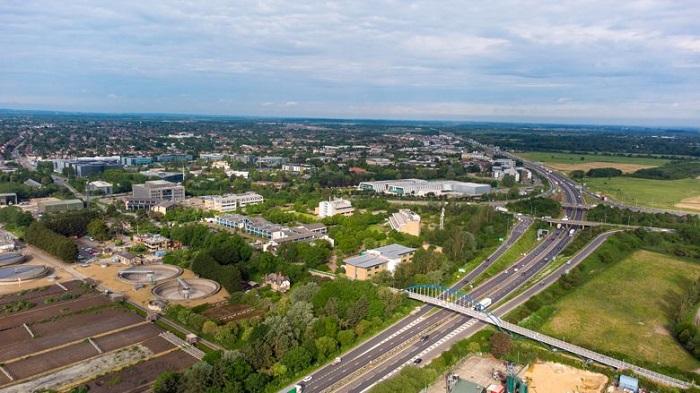The new data covers accounting years ending between October 2020 and April 2021 and is based on a sample of companies covering 68% of corporate employment in Greater Cambridge. The median period (December 2020) captures the impact of the first and second Covid lockdowns in England compared to the previous year before the pandemic began. An annual analysis of the 2020-21 financial year will be published in the spring.
Knowledge intensive sectors in the city region, such as life sciences, healthcare and IT continued to expand by 8%.
Overall, corporate employment growth slowed from 4.8% in 2019-20 to 3.7% in 2020-21 – which a report states remains a ‘significant rate of growth’ despite the effects of the pandemic.
The slowdown is due to the impact on non-knowledge intensive (non-KI) sectors which have been hit hardest by Covid-19, with non-KI growth slipping from 1.6% in 2019-20 to -0.8%.
A sample of 185 corporate companies also found that turnover fell from 9.3% to 1.5%, while employment dropped from 7.7% to 5.5% - with the government furlough scheme holding up employment in sectors with declining sales. This may be more felt by in-person services, such as gyms, hairdressers and restaurants which are not included in this sample.
The October 2021 update is the fourth report in a series of updates that provides a valuable overview and insight into corporate employment in Greater Cambridge.
The research was funded by the Greater Cambridge Partnership and Cambridge Ahead, and was carried out by the Centre for Business Research at the University of Cambridge.
Key findings
Corporate employment growth in the Greater Cambridge area has slowed down from 4.8% in 2019-20 to 3.7% in 2020-21 – the latter is still a significant rate of growth considering the unprecedented challenges brought about by Covid. However, there is variation in these growth rates across both industry sectors and firm sizes.
The slowdown in employment growth over the last two years is due to a weaker performance of non-KI sectors.
Whilst employment growth in KI sectors has remained unchanged at 8.0%, non-KI sectors have seen employment growth declining from 1.6% in 2019-20 to -0.8% in 2020-21. The rate of employment growth to 2021 in non-KI sectors has been negative in both Cambridge and South Cambridgeshire (-1.0% and -0.8%).
Sectors
‘Life science and healthcare’ (+11.9%) and ‘information technology and telecoms’ (+11.2%) have been the fastest growing sectors during 2020-21, with employment rates accelerating despite lockdowns.
Many service sectors have suffered reduced demand from customers as a result of the impact of Covid on their businesses. Employment growth to 2021 has either declined or remained unchanged in seven of the nine non-KI sectors, with the largest decline occurring in ‘other services’ – e.g. hotels, pubs and restaurants (-3.6%).
Sectors with the largest fall in employment growth relative to 2019-20 are ‘transport and travel’, ‘other services’ and ‘property and finance’. Employment growth has also slowed down in ‘high-tech manufacturing’.
Comparison of employment and turnover growth
Within the sample of 185 companies with accounting year ending October2020 and April 2021, annual turnover growth fell from 9.3% to 1.5% compared with a fall from 7.7% to 5.5% for employment driven primarily by a weaker performance of non-KI.
Total turnover for this group of KI companies rose by 14% in their latest six months compared with a decline of 8% in the first half of 2020 when the pandemic first hit – providing evidence of a strong recovery and an upturn in business confidence.
Cllr Elisa Meshini, Chair of the GCP Executive Board, said: “This data is vital to understanding how our economy has stood up to Covid-19 and it demonstrates just how vital our knowledge-intensive sectors have been, and will continue to be to our economy in the future as we move forward from the pandemic.
“It is therefore vital that the GCP continues to deliver our major infrastructure schemes – with the opening of the Histon Road project this year and Chisholm Trail phase one nearing completion – and our successful skills contract helping to support our businesses, workforce and residents.”
Matthew Bullock, Chair of Cambridge Ahead’s Regional Economic Planning Group, said: “Corporate employment growth in knowledge intensive sectors has continued at a significant rate and turnover data in these sectors also suggests a strong bounce back performance in the second half of 2020.
“To continue to support these companies to grow and for the non-KI sectors to recover quickly, we must ensure we are planning ahead and putting in the infrastructure before and alongside development, not after. This will help to promote high quality of life across our city region.”
